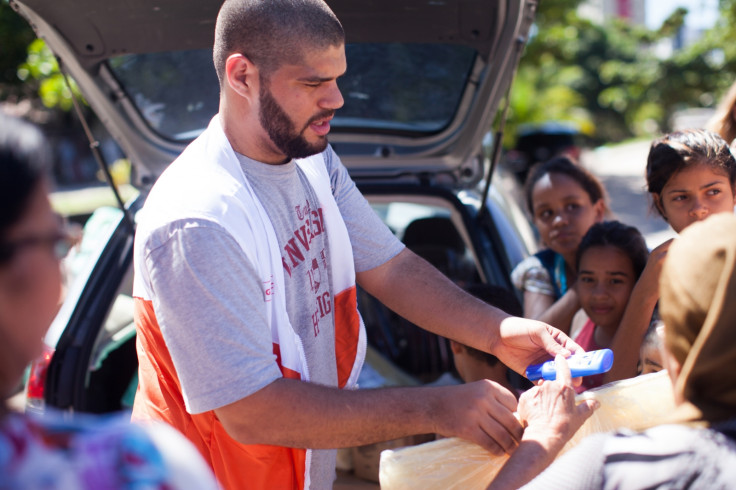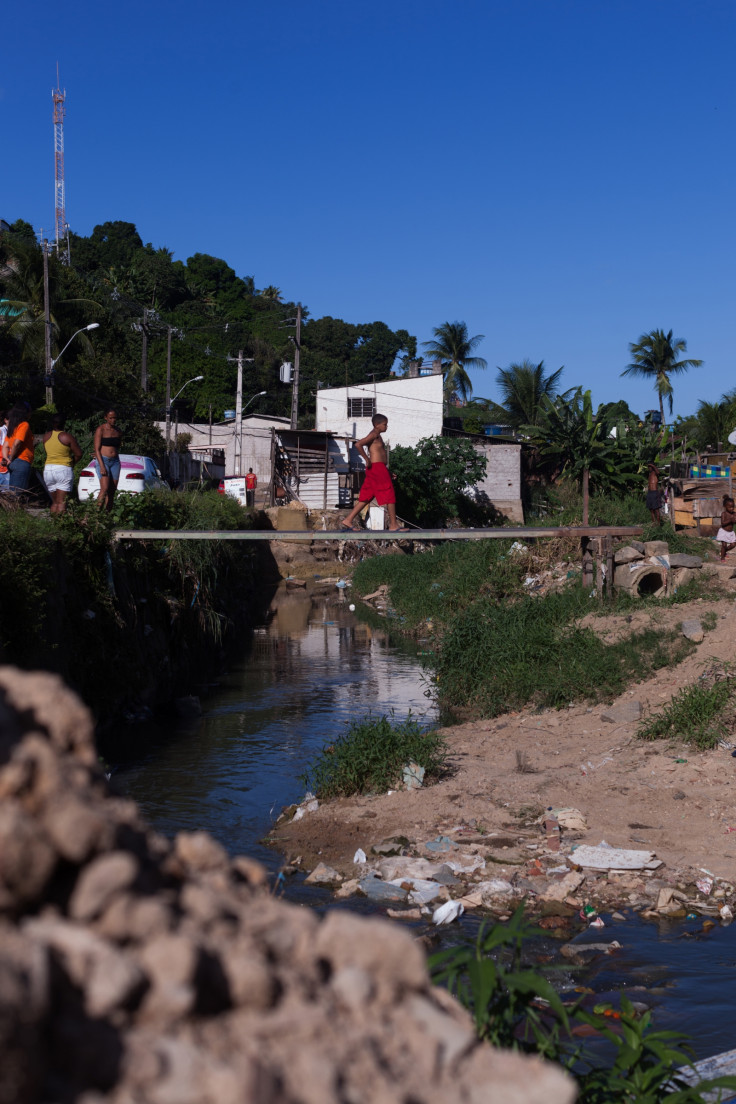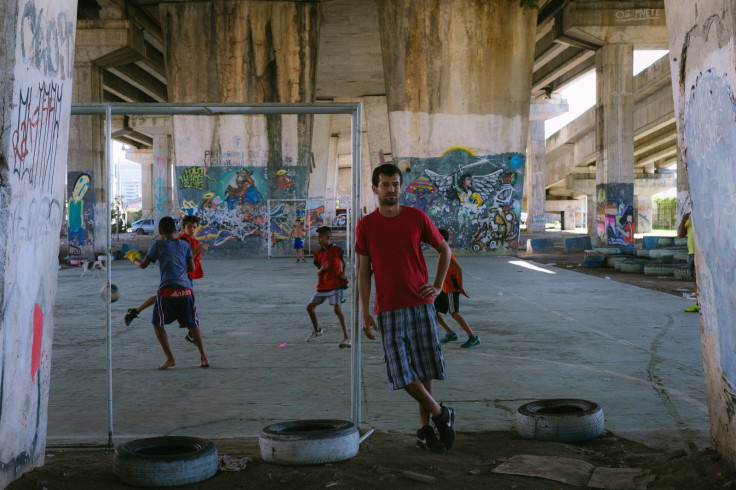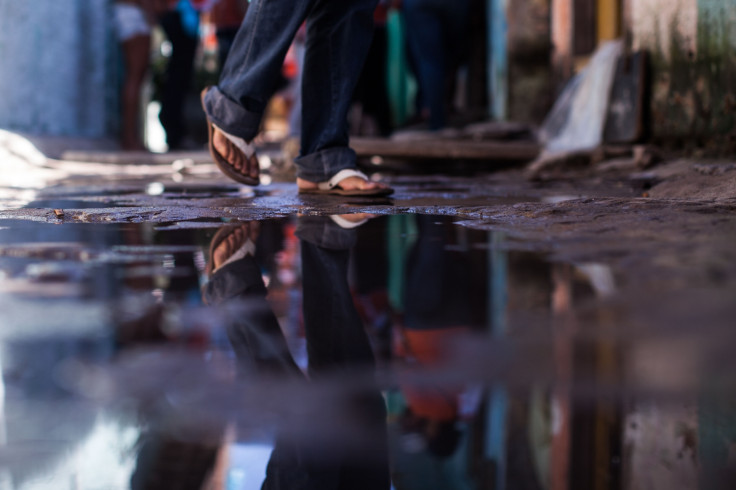Brazil's anti-Zika volunteers patrol poorest favelas in 'search and destroy' missions
Much of Recife's four-million populace live in abject poverty with no access to anti-Zika remedies.

As the Rio Games begin this week, 'search and destroy' operations to combat the Zika virus are underway in the Olympic village. Several times a day, teams of specially trained health agents will be monitoring the area for signs of mosquito breeding grounds – stagnant pools of water where the Aedesaegypti mosquito can flourish.
While the cooler, winter temperatures in Rio mean that the risk of contracting Zika is far lower than earlier in the year, the local organising committee is leaving nothing to chance, boasting of air conditioning in every bedroom for the athletes, and the special 'anti-mozzie' corporate dress with long sleeves and trousers to minimise bites.
Tourists and athletes are being reminded before travelling and on arrival in Rio about the importance of using insect repellent and other preventative measures.
But just a few miles away, in the north east of the country which is still bearing the brunt of Zika cases, the clean-up operation couldn't be more different. Recife, which is 500 miles from the Equator, is hot enough in winter for mosquitoes to thrive. Known as the Brazilian Venice, the tropical beachside city has many inlets and waterways which make ideal habitats for the insects, which cannot possibly all be monitored.
Recife is the capital of the state of Permanbuco, which so far has had 366 confirmed cases of microcephaly, the condition which causes babies to be born with abnormally small heads with devastating consequences; 481 are still being investigated. Brazil has a total of 1,749 confirmed cases and 3,062 under investigation.
Most of Recife's four million people live in abject poverty, with no access to the preventative measures that the Olympic tourists take for granted. Insect repellent is often sold-out, according to Dr Vanessa Van der Linden, the paediatric neurologist who first linked Zika and microcephaly. "Even when it is available, the prices have been put up, so it is unaffordable for most," she explains.
The state government has been attempting to prevent further Zika cases by engaging community agents to visit all homes every two months to check if water is being stored correctly. Basic mistakes include not covering water tanks, and even leaving pets' water bowls out.

But agents of the state are not trusted, especially as they are backed by police who can enter homes by force. It's part of a general mistrust of the Government and politicians, according to Baptist street pastor Daniel Oliveira.
Pastor Oliveira, 38, whose nickname is 'Skull,' ministers to the deprived under the huge concrete flyover above the Coque favela. He says Zika and the risk to the Olympics has been missed here because of the insularity and low levels of education. And he recalls one distressing example.
"In communities like this, they have no information and are ignorant about the dangers and the risks they are exposed to. I saw a mother with a baby with microcephaly and she was asking us for information as church members. She said: 'When will my child's head grow?' It was heart-breaking. One of our congregation took her to a doctor."
Anti-Zika kits include repellent, mosquito bed nets and rubber gloves for cleaning.
Pastor Oliveira is now running a three-year street pastor training programme to get more members of the congregation active in these communities.
Other churches are taking advantage of their trusted status and becoming more proactive in combating Zika. A few miles away, Reverend Henrique Marins is organising a clean-up and information session in his local favela, Comunidade da Borborema.
He has mustered a team of eight volunteers from the congregation of his church in the Peniel parish, part of the Charismatic Episcopal Church of Brazil, to identify pregnant women and children under six who would benefit from anti-Zika kits – repellent, mosquito bed-nets and rubber gloves for cleaning.

First, the young men have a 40-minute educational talk by Olivia de Carvallo, from the NGO World Vision Brazil, which is donating the supplies to the church as part of its Emergency Response to the Zika crisis. It is one of five churches in the city and 42 in the state being supported in this way.
Programme coordinator Olivia, 32, reels off fact after fact: one mosquito can infect 450 people, during a 30-day period; the female deposits 90 eggs in water – which is why water supplies need to be covered; mosquito eggs can survive without water for one year, hence the emphasis on cleaning.
The men joke while Olivia busts some myths – for example that alcohol rubbed on the body can act as a repellent – and laugh even more when she says the virus probably entered Brazil during the football World Cup precursor, the Confederations Cup in 2013.
"I've lived here 47 years. I wouldn't live anywhere else."
Almir Verissimo, 22, an industrial engineering student, speaks for the group: "Why are we hosting the Olympics – we don't want more people bringing disease!"
After the talk, the volunteers are split into two groups. The first, with white surgical masks, blue rubber gloves and black bin bags, begin knocking on doors, led by Rev. Marins, who has swapped his dog collar for a T-shirt.
The team give out advice leaflets and hand tickets to pregnant women and children. The second group wait outside the favela and swap the tickets for the supplies. Olivia explains: "It will be chaos if we try and hand out the supplies inside these narrow streets – everyone will want them."

During the two-hour trek around the narrow, winding lanes, the volunteers, including congregation member Maria Silva, 67, spot many sources of water – blocked gutters, discarded tyres, broken bottles, tin cans from rubbish bags and uncovered water tanks.
Drains are cracked and blocked while rubbish thrown on the waterways stink of animal decay. Despite the noise, squalor and stench, Maria loves it. "I've lived here 47 years. I wouldn't live anywhere else."
As the team wends its way, it dodges the municipal rubbish man with a pull-along cart, and gas suppliers carrying two barrels on a bicycle precariously.
Rev. Marins wants this to be a monthly event. "The people were very friendly, and showed great interest. And I'm proud of my volunteers."
At the end of the circular loop, the volunteers return to their starting point. Olivia sighs when she sees that some of her leaflets have already been ripped up and tossed onto the ground.
But then she smiles, thinking of the bigger picture. "We've just got to keep pushing on, for the babies' sake."
IN PICTURES: Street patrols warn residents about Zika risks and hand out mosquito repellent and supplies Ed


Jacqui Thornton has been a health journalist for 18 years, working as health correspondent at the Sunday Telegraph and Health Editor at the Sun. She was the 2016 winner of the UK Guild of Health Writers awards in the specialist category.
© Copyright IBTimes 2025. All rights reserved.





















